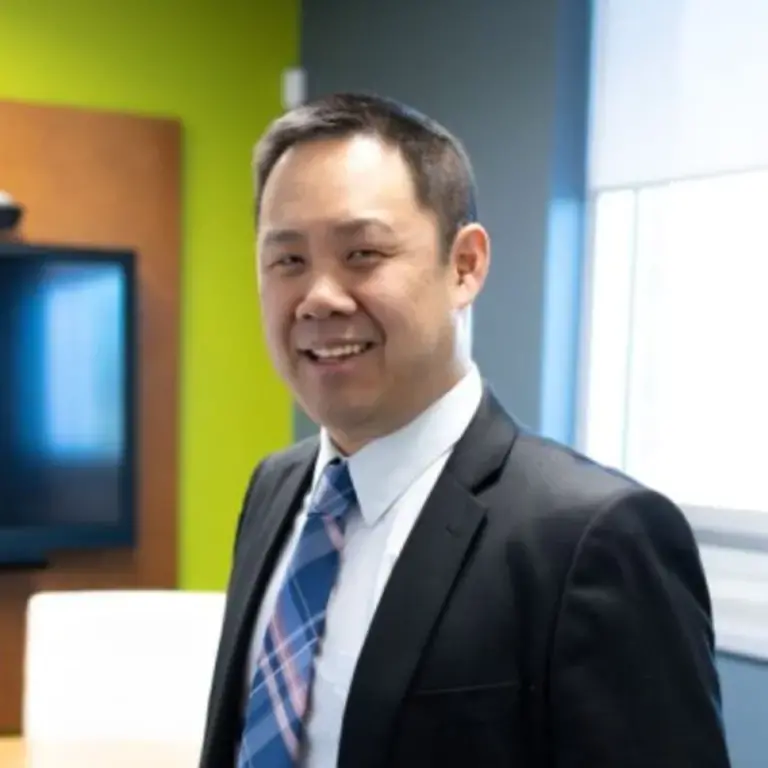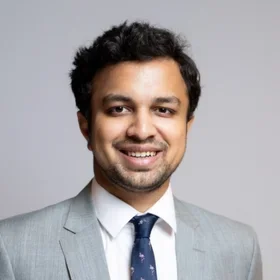By Warren Ting, M.P.S. in Insurance Management Alumnus, School of Professional Studies
In my two-plus decades in the insurance sector, predominantly in underwriting, my professional journey has been one of continuous growth and learning. However, it was the Master of Professional Studies program in Insurance Management at Columbia University that significantly altered my professional journey. The intensive, 16-month program not only expanded my horizons but also embedded within me a practical toolkit that was immediately applicable in the daily nuances of my work.
The insurance industry—with its complex operations—often operates in silos, each department functioning within its own domain. My career, up until the commencement of this program, followed this familiar siloed trajectory. Courses rich in contemporary theory and practical application revealed the interconnectivity of operations, enabling me to engage in meaningful dialogues with leaders across different departments. This paved the way for collaborative and innovative solutions.The exchange of ideas and experiences with professionals from diverse backgrounds and geographies has enriched my understanding and approach to tackling industry-specific challenges. These interactions have been instrumental in broadening my professional outlook, providing a global perspective on the challenges and opportunities within the insurance industry.
The program encouraged me to venture beyond my comfort zone and explore roles and responsibilities that were once foreign to me. An immediate testament to this was my involvement with our provincial regulatory body as an advisory committee member. This role in regulatory approval and governance, which I might not have considered prior to my studies, became a reality thanks to the confidence and knowledge I gained through the program.
The culmination of my journey at Columbia University was the implementation of my final applied research project. This endeavor focused on leveraging artificial intelligence and machine learning to revolutionize our company's front-end email and task management processes This project revealed the multifaceted challenges of managing voluminous email communications and resulted in the subsequent development of an AI-driven solution to streamline these operations.
Speaking to vendors and insurance professionals as a student in the program while acting on behalf of my company to find solutions to improve workflow processes is a unique experience. The project not only demonstrates the practical application of my learning but also marks a significant step toward operational efficiency and innovation within my organization.
Three months since presenting my project results to management, we have collaborated with our system's vendor and successfully automated the basic email sorting function. As with most operational changes, we have encountered some speed, reliability, and accuracy issues in our first iteration. The skills that I’ve picked up from the Operations course in the program have allowed me to break down these challenges, not be fazed by naysayers and take the necessary steps forward to make our workflow process and the system infrastructure more robust.
The Master of Professional Studies program in Insurance Management has been a transformative experience for me. It has not only equipped me with the knowledge and skills to venture into uncharted territories within the insurance industry but also fostered invaluable worldwide connections. These connections have further enhanced my ability to innovate and lead within a global context, ensuring that the impact of my learning extends far beyond the confines of my immediate professional environment.
About the Program
The Columbia University Master of Professional Studies in Insurance Management program equips a new generation of professionals to lead insurance businesses with advanced industry knowledge, strategic and operational expertise, and the skills to champion new ideas. The program is part-time, online, and instruction is asynchronous to accommodate working professionals. It consists of 10 required courses taken over four consecutive semesters (approximately 16 months, total, including a summer session), and two on-campus, in-person residencies, to the extent possible, prior to the start of and at the conclusion of the program.



